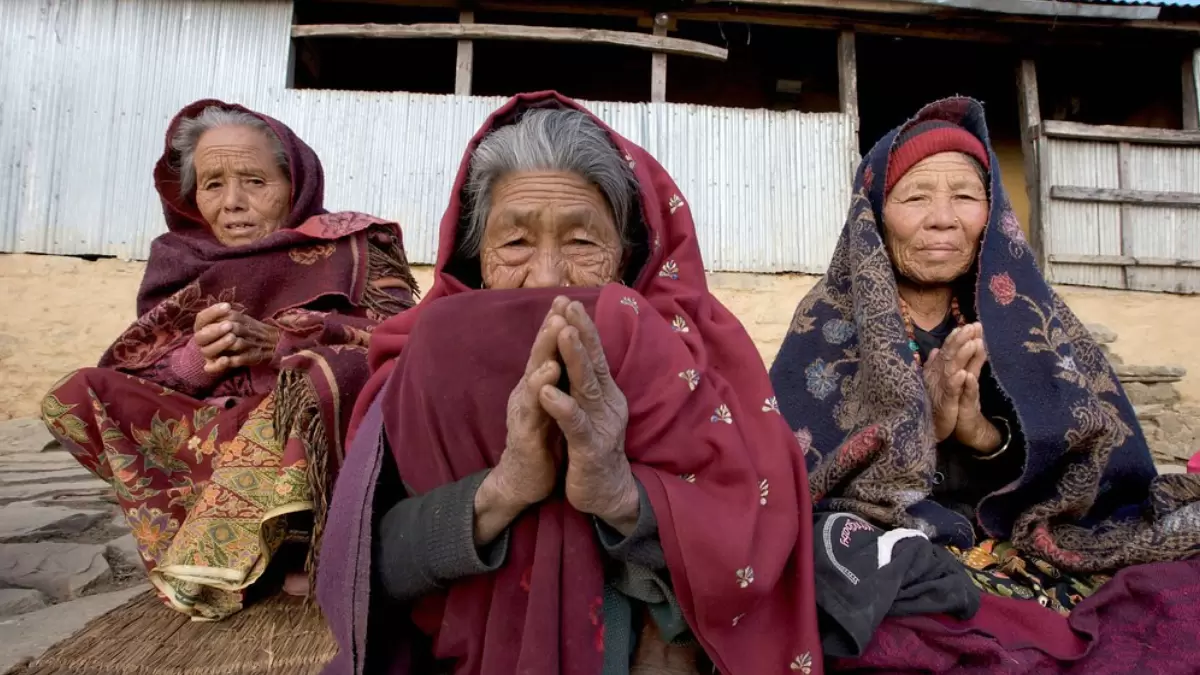Nepal is the home of the majestic mountain. The terrain is tough, infrastructure is limited, and medical facilities are often hours-if not days-away. In the shadow of the Himalayas, beyond Nepal’s bustling cities, lies a quieter but more pressing reality-rural community facing immense health challenges with limited access to care. At Kailash Foundation, we believe that no one should be left behind simply because of where they were born.
What is a Rural Health Campaign?
A rural health campaign is a targeted effort to improve health awareness, access to care, and overall well-being among people living in rural or remote areas. These campaigns address the unique health challenges faced by rural communities, such as limited access to medical facilities, shortages of healthcare professionals, and higher rates of certain diseases. They often focus on issues like maternal and child health, vaccinations, nutrition, sanitation, and prevention of common illnesses.
Rural health campaigns are various strategies to reach their audience, including mobile clinics, community health workers, educational workshops, and local radio broadcasts. They are typically organized by government health departments, non-governmental organizations (NGOs), or international health agencies. The goal is to bring critical health services and information directly to underserved populations, helping to bridge the gap between urban and rural healthcare and promoting healthier lifestyles in hard-to-reach areas.
The roles of rural health campaign in Nepal
Rural health campaigns play an important role in improving healthcare access, awareness, and outcomes in remote and underserved communities of Nepal. Some key roles of rural health are:
1: Access to Healthcare Service
Rural areas often lack adequate health facilities and personnel. It brings mobile clinics, vaccination drives, and basic treatments directly to the people.
2: Health Education and Awareness
It raises awareness about hygiene, nutrition, maternal health, family planning, and disease prevention.
3: Vaccinations and Disease Control
National immunization programs and special campaigns help prevent the spread of infectious disease, especially among children.
4: Maternal and Child Health
Focus on reducing maternal and infant mortality by promoting antenatal care, institutional delivery, and postnatal checkups.
5: Community Participation
Engage Female Community Health Volunteers (FCHVs) and local leaders to spread health messages and encourage healthy behaviors.
6: Disaster Response and Health Recovery
During emergencies like earthquakes and pandemics, rural health campaigns distribute medicine; provide mental health support, and education or safety measures.
TheRural Health Challenges
In Nepal, over 80% of the population lives in rural areas, where health services are often understaffed, under-resourced, or entirely absent. Maternal and child healthcare, treatment for common infections, mental health support, and chronic disease management are especially hard to come by. Many people must walk miles just to see a health worker or get essential medicine.
The consequences are heartbreaking-preventable illnesses turn fatal, a woman gives birth without skilled care, and treatable conditions go undiagnosed. Health outcomes in rural Nepal are still behind the global average.
Kailash Foundation: A Beacon of Hope
Kailash Foundation was born out of a simple but powerful belief: healthcare is a right, not a privilege. Our mission is to reach those often left behind-communities nestled in the hills, valleys, and plateaus of Nepal-with healthcare that is accessible, affordable, and sustainable.
What we do:
- Mobile Health Camps: We organize mobile clinics that travel to the heart of rural communities, providing general check-up screenings, maternal care, vacations, and essential medicine.
- Communities Health Workers (CHWs): We train and empower local residents to become health ambassadors in their villages. And the communities’ health workers offer first aid, health education, and serve as a vital link between the community and the medical professional.
- Telemedicine Initiatives: Where doctors can’t always go, technology does. We are piloting telemedicine programs that expert care in Kathmandu and beyond.
- Health Education and Awareness: From hygiene workshops to nutritious classes, we focus on preventive health and building long-term resilience in communities.
- Women’s Health Programs: With a focus on reproductive health, menstrual hygiene, and maternal care, we are working to ensure that no woman is behind.
Free Health Check-up Campaign at Nepal
Kailash Foundation is organizing a rural health campaign in Nepal aimed at improving healthcare access in remote and underserved communities. This initiative focuses on providing essential medical services, health education, and preventive care to villages where healthcare infrastructure is limited or nonexistent. Mobile medical camps staffed by volunteer doctors and nurses travel to those areas to offer free check-ups, distribute medicines, and raise awareness about common health issues, hygiene, and nutrition.
Through this campaign, Kailash foundation also seeks to empower local health workers by offering training and support, ensuring sustainable impact beyond the duration of each visit. By collaborating with local leaders and health institutions, Kailash Foundation aims to build a stronger healthcare network or foster community participation. Ultimately, the campaign is a step toward reducing health disparities and promoting well-being in Nepal’s rural population.
The Road Ahead
We know that real change takes time, trust, and teamwork, and that is why Kailash Foundation continues to collaborate with local governments, international partners, and the communities themselves. Our mission is not just to treat illness, but to build a future where rural health care is resilient, reliable, and rooted in dignity.
Join Us
Improving rural health is a journey-and we “Kailash Foundation” cannot do it alone. Whether you are a medical volunteer, a donor, or someone who simply believes in equitable healthcare, there is a place for you in this movement.

